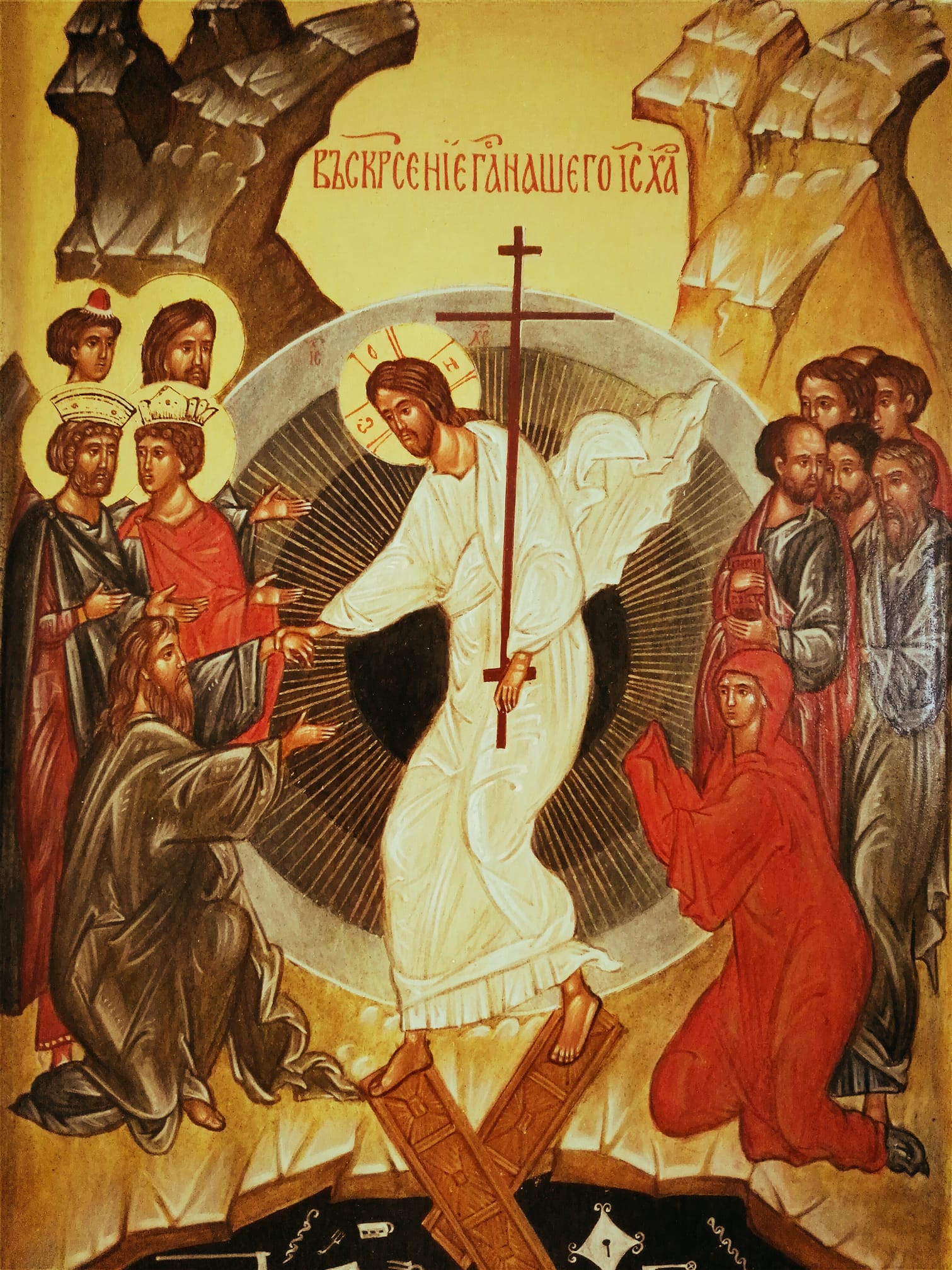 “Christ is risen! Indeed, he is risen”
“Christ is risen! Indeed, he is risen”
It has become a habit of the “wise of this world,” – those who claim to discern reality as it truly is – to say that modern man can no longer believe in miracles. Science has invalidated “miracles,” and while the Resurrection is a very nice thing, it is only a spiritual subjective experience. But today I say: ‘Says who?”
Today St. Paul says, “Where is the wise one? Where is the scribe? Where is the debater of this age? Has not God made the wisdom of the world foolish? (1 Corinthians 1:20)” Even when we say that the resurrection is a spiritual subjective experience, we do this because we say that “God is the ground of all being,” as St. Paul preached to the Athenians, “‘In him we live and move and have our being. (Acts 17:28)” If so, can he not give life that defies our earthly wisdom? Indeed, Jesus said to the Sadducees who denied resurrection, “As for the dead being raised, have you not read in the Book of Moses, in the passage about the bush, how God told him, ‘I am the God of Abraham, the God of Isaac, and the God of Jacob’?
He is not God of the dead but of the living. You are greatly misled” (Mark 12:26-27). Did not St. Paul warn us, “if Christ has not been raised, then empty too is our preaching; empty, too, your faith” (1 Corinthians 15:14).
What the resurrection of Jesus has taught us is that we enter the fullness of life through the gates of death, just as he did in the cross and resurrection, for “unless a grain of wheat falls to the ground and dies, it remains just a grain of wheat; but if it dies, it produces much fruit,” (John 12:24) and again, “For whoever wishes to save his life will lose it, but whoever loses his life for my sake and that of the gospel will save it” (Mark 8:35). The only difference is that Christ is risen, because “But God raised [Jesus] up, releasing him from the throes of death, because it was impossible for him to be held by it … nor will you suffer your holy one to see corruption” (Acts 2:24.27). Because of our sins, we must go through the corruption of death to attain life. The “wise of this world” say this is a childish belief, how can this happen, but again St. Paul writes, “What eye has not seen, and ear has not heard, and what has not entered the human heart, what God has prepared for those who love him” (1 Corinthians 2:9). Nor, my brothers and sisters, is this other-worldly escapism: the resurrection can and should transform the way we live in the world today.
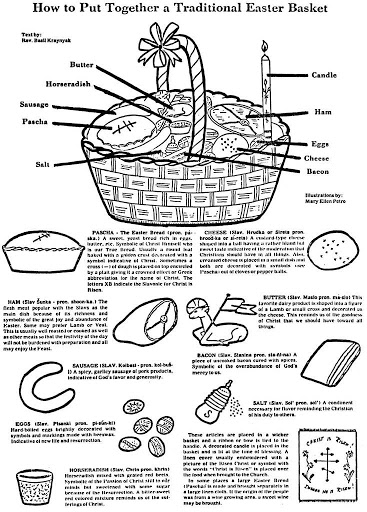 Easter Baskets will be blessed on Saturday, April 11.
Easter Baskets will be blessed on Saturday, April 11.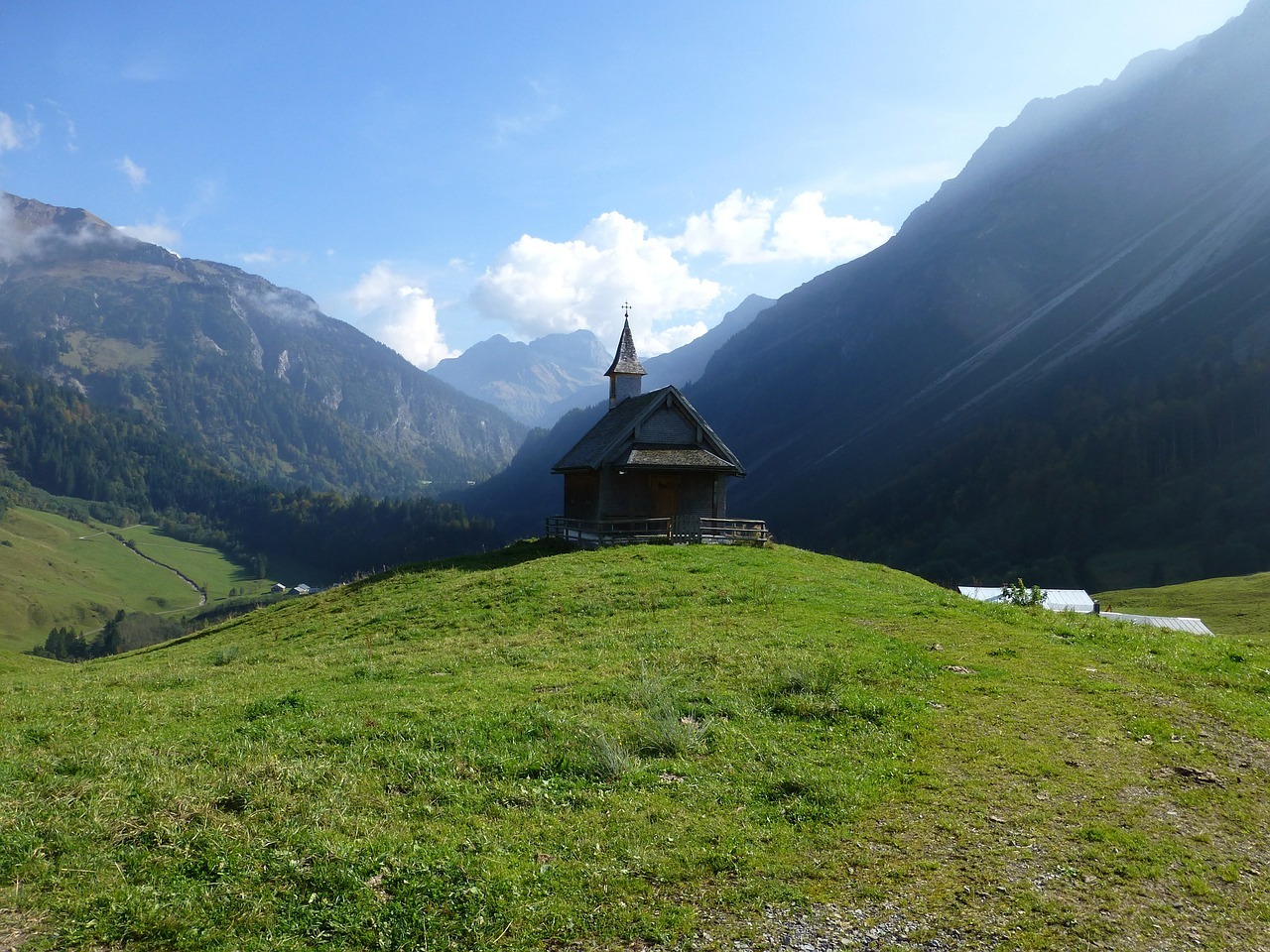 “Jesus said to her (Mary Magdalene), ‘Woman, why are you weeping? Whom do you seek?’ Supposing him to be the gardener, she said to him, ‘Sir, if you have carried him away, tell me where you have laid him, and I will take him away.’ Jesus said to her, ‘Mary.’ She turned and said to him in Hebrew, ‘Rabboni!’ (which means Teacher). Jesus said to her, ‘Do not touch me (Μή μου ἅπτου / Noli me tangere / Не прикасайся мне), for/because (γὰρ) I have not yet ascended to the Father; but go to my brethren and say to them, I am ascending to my Father and your Father, to my God and your God.’” (Jn 20: 15-17)
“Jesus said to her (Mary Magdalene), ‘Woman, why are you weeping? Whom do you seek?’ Supposing him to be the gardener, she said to him, ‘Sir, if you have carried him away, tell me where you have laid him, and I will take him away.’ Jesus said to her, ‘Mary.’ She turned and said to him in Hebrew, ‘Rabboni!’ (which means Teacher). Jesus said to her, ‘Do not touch me (Μή μου ἅπτου / Noli me tangere / Не прикасайся мне), for/because (γὰρ) I have not yet ascended to the Father; but go to my brethren and say to them, I am ascending to my Father and your Father, to my God and your God.’” (Jn 20: 15-17)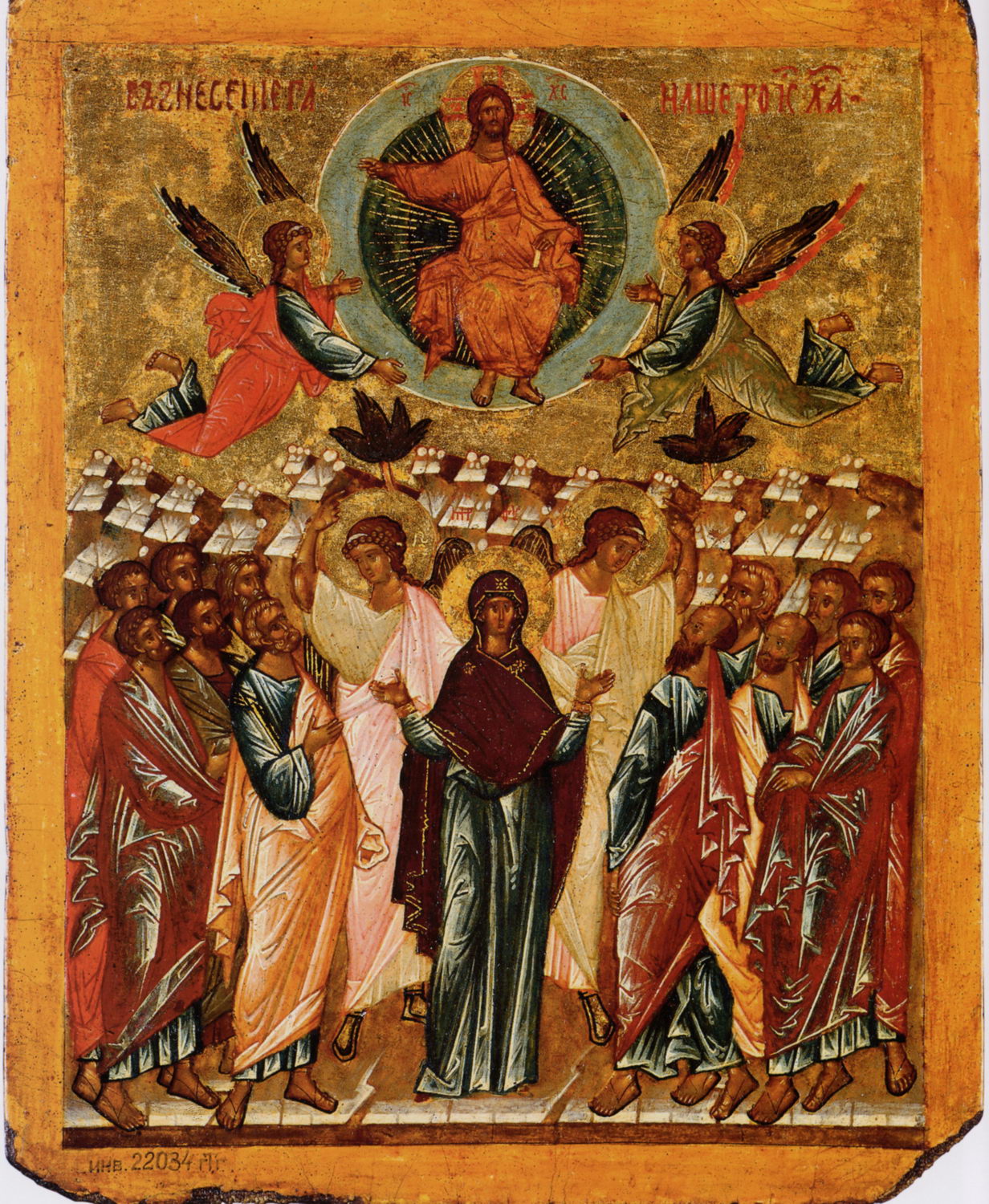 Thursday, 5/30,
Thursday, 5/30, 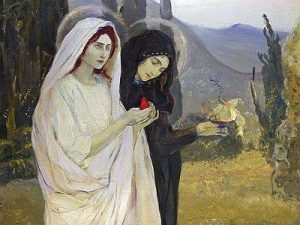 SEEKING THE LIVING AMONG THE DEAD
SEEKING THE LIVING AMONG THE DEAD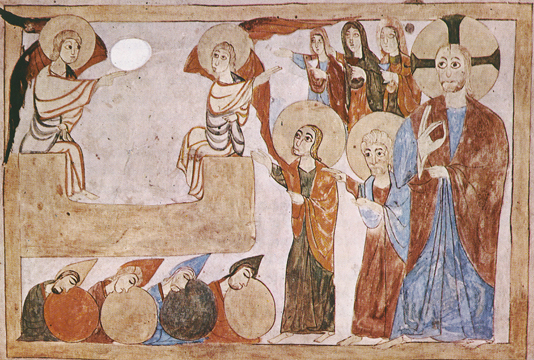 This Sunday presents us with the proclamation of the resurrection according to St. Mark.
This Sunday presents us with the proclamation of the resurrection according to St. Mark.